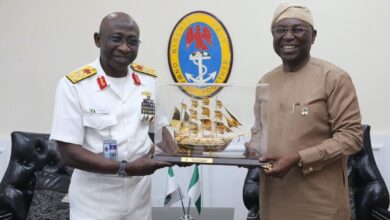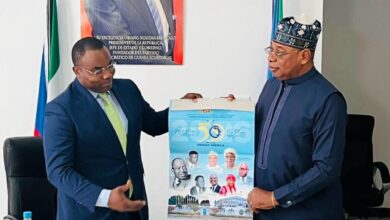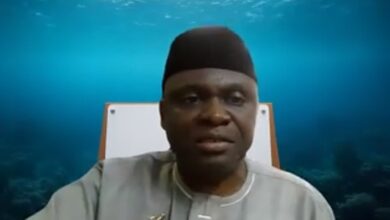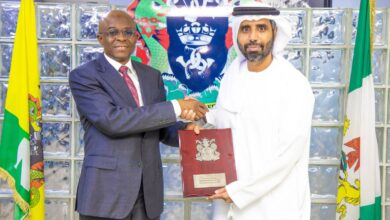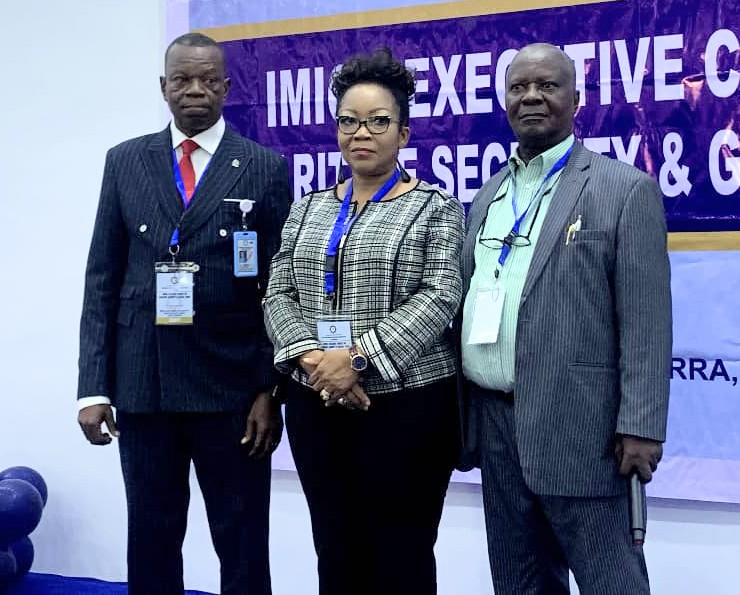
Martime security expert, Obiora Edwin Madu, has said that secure shipping lanes form the backbone of global economic prosperity and any disruption will threaten supply chains worldwide as 90% of international trade is transported by sea.
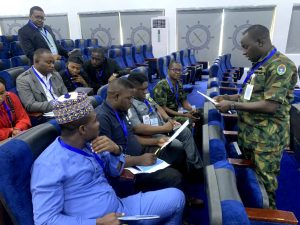 Madu made this assertion during a paper presentation on ” Safe Seas & Secured Trade” at a seminar on Maritime Security & Global Trade organised by the International Maritime Institute of Nigeria (IMION) on 30th April, 2025.
Madu made this assertion during a paper presentation on ” Safe Seas & Secured Trade” at a seminar on Maritime Security & Global Trade organised by the International Maritime Institute of Nigeria (IMION) on 30th April, 2025.
He said that vessel hijacking and cargo theft persist in certain regions, while the increasing digitization of shipping introduces new vulnerabilities. Cyberattacks on vessels or ports could severely disrupt global supply chains. As these threats continue to evolve, adaptive security measures are essential to stay ahead.
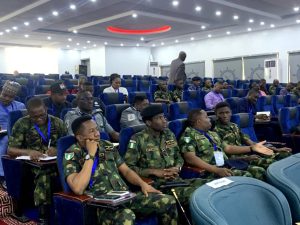 On Piracy Hotspot, he disclosed that the Gulf of Guinea accounts for over 90% of global crew kidnapping. He also said that the Horns of Africa and Southeast Asian Waters frequently see robbery attempt. Although maritime terrorism remains low frequency but potentially high impact. The interconnected nature of global shipping magnifies consequences.
On Piracy Hotspot, he disclosed that the Gulf of Guinea accounts for over 90% of global crew kidnapping. He also said that the Horns of Africa and Southeast Asian Waters frequently see robbery attempt. Although maritime terrorism remains low frequency but potentially high impact. The interconnected nature of global shipping magnifies consequences.
He stressed that security of the sea lanes is not just a military concern, as it underpins everything from food security to energy access and industrial production, thereby affecting billions of lives daily through the good people consume.
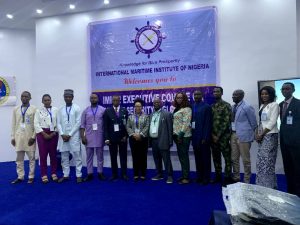 The martime expert advised that to ensure martime security, Africa must lead in securing it waters not just to protect trade but to unlock its vast maritime economy potential. With 38 coastal states and a blue economy valued at over $1 trillion annually.
The martime expert advised that to ensure martime security, Africa must lead in securing it waters not just to protect trade but to unlock its vast maritime economy potential. With 38 coastal states and a blue economy valued at over $1 trillion annually.
“The financial consequences of Maritime security incidents vary dramatically in scale but are universally significant. While individual piracy incidents might cost millions, major disruption like the Surez Canal blockage can reach billions in daily losses affecting the global economy.
“The development of private security personnel and specialized anti piracy equipment further compounds these operational costs. Directly impacting shipping rates globally. There is a 350% insurance premium increase for vessels traversing high risk zones, vessels are forced to pay $1M as added cost per trip for rerouting around the red sea.
“Critical goods such as medical supplies, food, and technological components face heightened risk demonstratex by the ever given incident that disrupted approximately $60 billion in trade during just on week of the Surez Canal blockage.
“Global maritime security spending exceeds $30 billion annually. These costs affect shipping rates and consumer prices worldwide.”
Distinguished legal practitioner, martime expert, and consultant to the institute , Mrs Mfom Ekong Usoro who gave an appraisal of the training program and an update on CILT partnership in federal government blue economy agenda said that the most outstanding aspect of the course was the diverse participation from the military, and the Nigeria Customs, whose interventions really showed that they understand the functions of the customs in global trade in Nigeria.
Mrs. Usoro advocated for enhanced maritime domain awareness, noting that multiple agencies own and operate assets in isolation.
She recommended that Nigeria adopt an integrated maritime security strategy and framework, overseen by a single authority, to consolidate assets and eliminate duplication.
She stressed that the approach would optimize resource allocation, allowing funds to be redirected towards other critical areas of agency operations.
” We had experts as members of the faculty comprised of professors who have expertise in security generally in maritime security and blue economy. And we also had retired and serving officers at lecturers who are experts in blue economy.
I think a combination of the paper presentation, the interactive session, and even the ongoing syndicate session now, is the realization that Nigeria does have assets to combat sea robbery or piracy
“So if the maritime security architecture is under the control of one agency and then they collaborate, serious institutional collaboration and linkages and direction, it will be better for the whole country.
The communication, the information interchange and the deployment of assets will be better coordinated in real time and would better result in confidence for those who make use of rivers and seas and ports for their trading”
A representative of the Nigeria Customs Service and Special Assistant to the Area Controller of PTML Command, Assistant Comptroller Mohammed Salisu Mukhtar, said the course was incredibly intense, covering the comprehensive syllabus in just two days.
It proved to be very resourceful, providing valuable insights into emerging trends and threats in maritime security, as well as the challenges faced by maritime operators and their impact on global trade. Aligning with the Comptroller General of Customs’ policy thrust of consolidation, collaboration, and innovation,
He said he will integrate these principles into the NCS policy, leveraging technology to enhance collaboration with sister agencies like the Nigerian Navy, Nigerian Port Authority, and other stakeholders.






